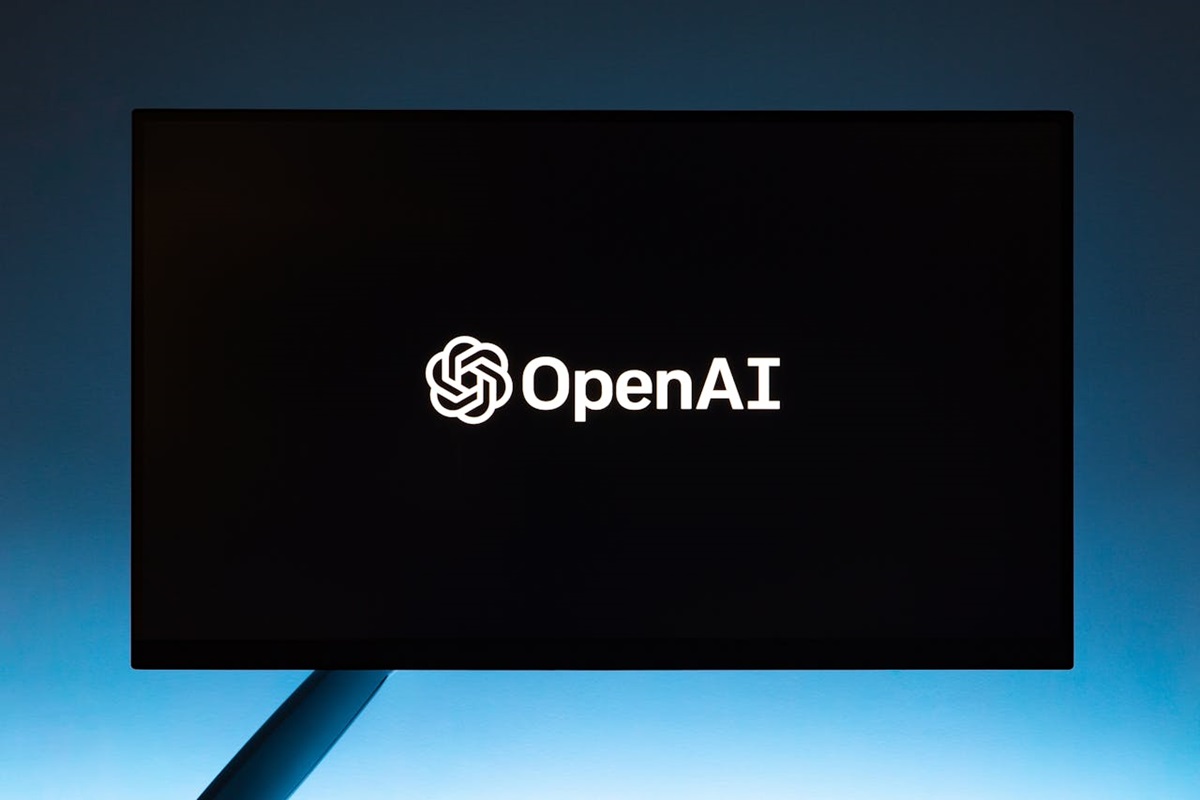OpenAI has secured a new revolving credit line worth $4 billion.

It’s worth noting that this week, the mentioned startup, which developed the world’s most popular artificial intelligence-based chatbot called ChatGPT, closed a $6.6 billion funding round. OpenAI announced the new revolving credit line on Thursday, October 3.
After the completion of the specified funding round, the valuation of the developer of the world’s most popular chatbot based on artificial intelligence reached the $157 billion mark. For a startup, the received investments and a new revolving credit line have both important tactical significance in the form of financing, which allows it to continue elaborating new and improving existing products, and a special strategic meaning, implying new prospects for the evolution of OpenAI as a player in the global technology sector. It is also worth noting that currently the developer of the world’s most popular chatbot based on artificial intelligence belongs to the category of the most valuable private companies in the world.
The startup claims that the borrowing facility will help increase its liquidity to the $10 billion mark. This funding will allow the ChatGPT developer to buy expensive computing capacity. In the relevant context, Nvidia’s chips are meant as a matter of priority. Also, borrowing facilities, which in a certain sense are expanded opportunities, will increase the competitiveness of a startup. It is worth noting that competition in the artificial intelligence industry has been on an increasing trajectory lately. This tendency is as natural as possible. The corresponding thesis is explained by the fact that artificial intelligence has huge potential. AI is on its way to becoming a new means of production having a global impact on the economy in general and the processes in this space in particular. There is also a significant possibility that artificial intelligence will become an alternative form of mind existing in the virtual dimension of the comprehensive being. Moreover, there is a prospect that over time AI will surpass human consciousness in terms of the level of development of cognitive abilities. One of the proponents of this predictive point of view is Elon Musk.
OpenAI’s chief financial officer Sarah Friar said that the credit facility further strengthens the startup’s balance sheet and provides flexibility to seize future growth opportunities.
The credit line is with JPMorgan Chase, Citi, Goldman Sachs, Morgan Stanley, Santander, Wells Fargo, SMBC, HSBC and UBS.
It is worth noting that OpenAI, in a certain sense, is the core of the so-called artificial intelligence boom. The corresponding process, involving the rapid development and scaling of machine intelligence technologies, actually began after ChatGPT debuted in 2022. This artificial intelligence-based chatbot has impressed consumers of digital products with its cognitive abilities, which allow it to process information in a highly efficient way and generate original content.
The funding round of OpenAI, which ended this week, was attended, among other things, by the biggest corporate backer of the startup, which is Microsoft, and Nvidia, specializing in the development of graphics processing units necessary for training and ensuring the process of subsequent operation of artificial intelligence systems. This fundraiser was led by Thrive Capital.
The conversion of a startup to equity hinges on a successful structural transformation into a for-profit company and the lifting of restrictions on return for investors.
It is also worth mentioning that last month, OpenAI’s chief technology officer Mira Murati suddenly announced the departure.
The personnel changes do not have a negative impact on how investors perceive the prospects for further development of a startup. They are guided by the forecasts of OpenAI’s chief executive officer Sam Altman, who expects significant business growth. This vision is generally viable, since the artificial intelligence industry is on an upward trajectory, and the startup is one of the main players in the corresponding space of advanced technologies focused on the formation of a qualitatively new digital reality.
OpenAI’s revenue is expected to be fixed at $3.6 billion in 2024. At the same time, the startup’s losses in the current year are projected to amount to more than $5 billion. However, the media, citing anonymous insiders, report that OpenAI expects its revenue to be fixed at $11.6 billion in 2025. This is a significant, but still not guaranteed, increase compared to the current financial performance of the developer of the world’s most popular chatbot based on artificial intelligence.
The media also reported that OpenAI has prepared a special offer for Thrive Capital. In this case, it is assumed that the mentioned company will be able to invest another $1 billion in the ChatGPT developer next year at the same valuation. At the same time, as the media clarifies, the corresponding opportunity will be available if OpenAI reaches its revenue target.
Also this week, journalists released information according to which the developer of the world’s most popular chatbot based on artificial intelligence asked his investors to refrain from making financial injections into several other companies that are players in the AI industry. In this case, as reported by the media, referring to insiders, it means those firms that OpenAI identifies as its closest competitors. It is known that the list of companies in respect of which the ChatGPT developer would not like to observe investment actions of its backers mentions Anthropic and Elon Musk’s xAI. It is worth noting that these firms specialize in the development of large language models. Safe Superintelligence (SSI), the company of OpenAI’s co-founder Ilya Sutskever, is also mentioned in the corresponding list. In this case, there is a certain pattern. Preliminary findings indicate that OpenAI, in the context of the mentioned efforts, in the framework of interaction with its investors, pays priority attention to developers of large language models who need multibillion-dollar financial injections. In a certain sense, these startup actions, the result of which is still unknown, are a kind of reflection of the growing competition in the artificial intelligence industry.
Machine intelligence search startup Perplexity AI and enterprise search firm Glean were also mentioned in the specified list.
At the same time, it is worth noting that OpenAI’s request to investors is insider news and its relevance to reality is unknown. It is possible that in this case, the information is reliable. At the same time, the opposite answer to the question of whether the truth is contained in media reports that OpenAI asked investors not to make financial injections into competitors is no less realistic.
Journalists have not yet received official comments on insider information.
At the same time, it is worth noting that the request from OpenAI is not legally binding on investors. As noted by the media, in this case, the startup uses its status and reputation in the artificial intelligence industry to exert benefits for its impact on sources of financing. Also, in this context, it is important to pay attention to the fact, which is a kind of axiom, that access to capital largely determines competitiveness and is what can be called a platform of favorable prospects. The corresponding thesis is especially relevant for the artificial intelligence industry, characterized by the need for massive expenses. The development of AI requires huge financial injections, but the prospects exceed this necessity.
It is worth noting that many investors operate within the framework of the practice of limited interaction with companies. In this case, the implication is that venture capitalists try to avoid making financial injections into competitors of their portfolio firms. Abandoning the appropriate investment practice can cause reputational losses. From this point of view, it would be fair to say that the OpenAI’s request, which was reported by the media, can be interpreted as a reminder of the standard approach to financial injections.
At the same time, the mentioned practice is less typical for late-stage investors. For example, SoftBank and Fidelity have made financial injections in both xAI and OpenAI.
The media clarified that the request of the developer of the world’s most popular chatbot based on artificial intelligence does not apply to his past investors and those financial injections that have already been made. At the same time, this position of a startup is likely to be a factor of sensitive impact on its future investors and will become a circumstance determining the specifics of new fundraising.
Currently, funding for artificial intelligence area players is being carried out intensively. This week, it became known about the receipt of investments by several companies of the corresponding functional orientation, except for OpenAI. For example, Poolside, a startup specializing in building artificial intelligence for software development, reported that it managed to raise $500 million in a Series B funding round. The goal of this startup is to create such machine intelligence that will think at the level of the human mind while elaborating on software. Poolside plans to use the received investments to expand its artificial intelligence training capabilities. This startup also reported that it has already secured 10,000 Nvidia’s graphics processing units.
Moreover, Poolside intends to spend part of the received investments on go towards market expansion and an increase of its research and engineering teams.
Chief executive officer of the mentioned company Jason Warner stated that only a handful of firms will reach artificial general intelligence. According to him, the list of relevant firms is being formed at the moment. Jason Warner believes that software development will be the first broad capability where artificial intelligence will reach and surpass human-level intelligence. According to him, the Poolside team, the company’s applied research, and its powerful engine of revenue will contribute to bringing machine intelligence into the elaborating software so that anyone in the world can build. The first product of this firm will be a virtual assistant powered by artificial intelligence for writing code for developers. Moreover, the company intends to refine tools that will allow anyone to build software.
Also, this week, it became known that HPC-AI Tech, a startup specializing in AI software infrastructure and video generation, secured $50 million as part of a Series A funding round. The company intends to use these funds to implement solutions for the development of its platform and expand its customer base. It is worth noting that the goal of the startup is to reach 300 clients in three years.
HPC-AI Tech is known for its open-source projects, including Colossal-AI and Open-Sora. These projects have accumulated over 60,000 GitHub stars. Colossal-AI provides entrepreneurs with the opportunity to scale large artificial intelligence workloads. Open-Sora focuses on efficient video content generation.
The mentioned startup’s commercial platforms, including hpc-ai.com and video-ocean.com, offer users the ability to manage artificial intelligence models and video generation capabilities, respectively. HPC-AI Tech has 50 key clients, including AWS, Alibaba, IBM, Intel, and Oracle.
Investing in artificial intelligence, characterized by a high degree of intensity, is not just a kind of popular tendency at the intersection of the financial area and the technology sector, but also, in a certain sense, a feature of the era as a stage in the development of human civilization. Currently, AI is actually the highest form of technological development that can evolve to the stage of transformation into an alternative mold of mind. From the mentioned point of view, financial injections into the relevant industry are conditioned by the logic of the historical process. In this context, the technological aspect of the mentioned process is implied.
Active investment in the artificial intelligence industry is a kind of guarantee of its development at least in the medium term. In this context, it is worth noting that against the background of the evolution of AI, the issue of cybersecurity is becoming more relevant. Scammers operating in virtual space have access to artificial intelligence technologies. Against the background of the corresponding challenge in the cybersecurity area, personal awareness of users about the threats they may face in the virtual space is of particular importance. For example, such a query in the Internet search system as how to know if my camera is hacked will allow anyone to get information about signs of unauthorized access to the device. It is worth noting that the relevant knowledge should be updated periodically, since the technologies used, including by cybercriminals, are constantly evolving. Digital literacy is an effective tool for countering crime in the virtual space.









